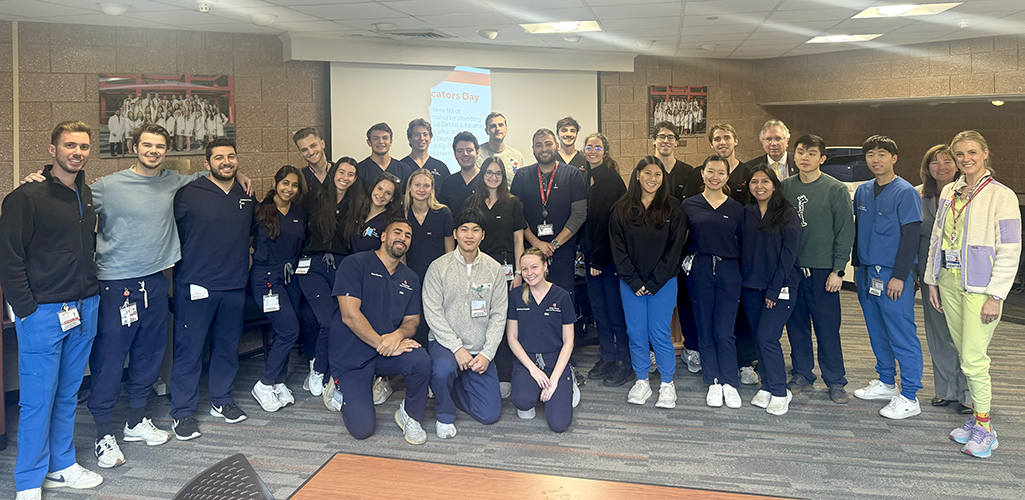
Driven by the shortage of dental school faculty in New York and across the United States, Stony Brook School of Dental Medicine hosted its second Dental Educators Day on Thursday, October 3, on Stony Brook University’s south campus. The event was held in conjunction with World Teachers’ Day, and will be celebrated at Stony Brook on the first Thursday in October each year.
Patrick Lloyd, DDS, MS, dean of the School of Dental Medicine, met with students and junior faculty to share the many pathways in dental education, how faculty are promoted and tenured, as well as tips on how and where to secure an academic position.
This topic is critically important for dental schools in general, with the percentage of dental students who go on to teach at slightly over 1 percent,” Dean Lloyd said. “With such a low percentage, the support of dental education cannot be sustained unless greater numbers of students consider a career in academia as an option.”
The United States has also experienced an increase in not only the number of dental schools in the United States – more than a dozen in the last 15 years – but increased class sizes, from a first-year enrollment of 4,232 in 2000 to more than 6,300 in 2020. Additionally, the dental workforce is aging, with more than 40 percent of full-time dental faculty in the United States over the age of 60. Recruitment of faculty is challenged as well by private practice opportunities that often provide greater levels of compensation.
As one of few institutions at which dental students can concurrently earn a Master of Arts in Higher Education Administrationdegree at no extra cost in tuition, Stony Brook is uniquely positioned to help dental students interested in an academic career get a head start. Those in Stony Brook’s general practice residents can also develop their skills as didactic and clinical instructors by completing a second year of training in the program.
Leading up to the celebratory day, School of Dental Medicine faculty members shared their sentiments on what makes a career in academia so rewarding.
“The most rewarding part of being a dental educator is seeing students achieve their educational goals and transform from beginners into skilled clinicians, while also seeing the patients happy with their care,” said Euane Newen, DDS '97, AEGD '98, clinical assistant professor in the Department of General Dentistry and director of the General Practice Program D4 Clinic. “Teaching is a fulfilling career that not only allows educators to share their knowledge but also helps them stay up to date on the latest dental practices.”
Teaching is deeply rewarding,” added Hechang Huang, DDS, MS, MSD, PhD, director of Stony Brook’s Advanced Education Program in Orthodontics and Dental Orthopedics. “It inspires light-bulb moments and life-long personal growth. It stimulates intellectual curiosity and creativity. It builds up mind and hand skills, offering the chance to make a meaningful impact on students' lives. Teaching provides job satisfaction, professional development and lasting relationships while contributing to the future"

